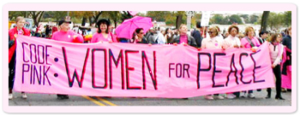Ecosystem restoration: an inspirational plan for people and planet

The Altiplano Estepario, a semi-arid steppe in Southern Spain which is undergoing restoration © AlVelAl
Our planet’s ecosystems are essential for life on Earth, and with threats from climate change, biodiversity loss and pollution, there has never been a more urgent need to revive them. The UN Decade of Ecosystem Restoration, which launched in June and runs until 2030, is a call to action to prevent, halt and reverse the degradation of ecosystems worldwide.
Not-for-profit organisation Commonland, one of the 61 official partners of the UN Decade, is leading the way. It created a framework for carrying out large-scale, long-term restoration initiatives across the globe. Based in the Netherlands, the international organisation has set its sights on transforming 100 million hectares of degraded land into thriving ecosystems and communities by 2040, an area twice the size of Spain.
4 Returns Framework
Commonland transforms degraded ecosystems by focusing on four key returns over the course of 20 years: inspiration (providing hope and a sense of purpose); social capital (bringing back jobs, business, and education); natural capital (restoring the landscape); and financial capital (long-term sustainable profit).
“They were one of the first ones who cracked the code for making large restoration projects viable”, says Tim Christophersen, Coordinator of the UN Decade on Ecosystem Restoration with the United Nations Environment Programme (UNEP), who worked with Commonland on one of their projects in South Africa.
Among Commonland’s eight projects currently in progress, two are in Europe, covering more than a million hectares out of their 100 million goal: the restoration of the Western Peat Meadows in the Netherlands, and the Altiplano Estepario, a semi-arid steppe (a large area of flat unforested grassland) in Southern Spain.
Extreme climate conditions
Across the Mediterranean, the impact of climate change is already being felt. After exploring several potential landscapes for restoration, Commonland selected the Altiplano Estepario landscape, a rural area of one million hectares which sits between Malaga and Alicante and has witnessed a sharp decline in population.
“The Altiplano is a semi-arid steppe: a transition between a desert and a forest. There is too little rain for a forest to grow but the soil is too moist for deserts. So, on this high plateaued landscape, water is, and always has been, scarce”, explains Erica ten Broeke, Landscape Manager at Commonland.
Climate conditions are extreme due to cold winters, hot summers and an extended frost period. Soil erosion, the displacement of the upper layer of soil, is slowly swallowing fertile land and forests.
Working with local partners, including landscape partners Foundation Aland and Association AlVelAl, the project is restoring natural zones by planting trees and shrubs, creating water infrastructures, and promoting biodiversity such as through insect hotels, manmade structures that provide shelter.

“We inspire farmers to practice a more sustainable form of agriculture. You see that soon after piloting, farmers roll out the practices across their entire farm”, says Erica ten Broeke. Economic opportunities have also been created, with businesses now selling almonds and olive oil made through regenerative agriculture practices, a farming system which has a net-positive impact on the land.
So far, over 140,000 trees have been planted in the area and 200,000 seeds have been sown by drone. More than 180 farmers are actively rolling out regenerative practices on their farm, resulting in more than 10,000 hectares being under improved land management.
By 2036, the project aims to transform the Altiplano-landscape into a place where nature and agriculture are in balance with the people who live and work there. It hopes to see greater biodiversity hotspots, and young people returning to the area for increased economic opportunities.
“We are hoping to serve as a lighthouse example for dryland restoration in the Mediterranean Basin”, says Erica ten Broeke.









Leave a Reply
You must be logged in to post a comment.